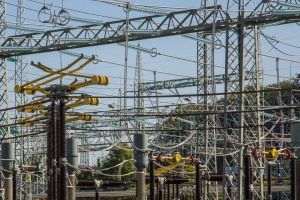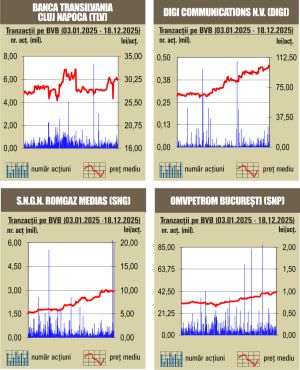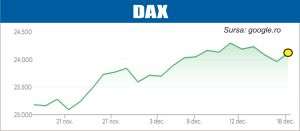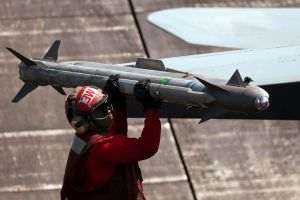Bursa de Valori din Bulgaria (BSE) este singura bursă din Bulgaria, operatorul pieţei de capital oferind spre tranzacţionare acţiuni ale companiilor bulgare, precum şi obligaţiuni de stat, corporative şi produse de tip ETF (Exchange Traded Fund). Bursa din Bulgaria nu operează în prezent o piaţă de instrumente derivate, dar managementul operatorului bursei vecine spune că aducerea acestor produse în piaţă reprezintă un obiectiv de-al său.
• Operatorul pieţei bulgare a devenit companie listată în 2011
La aproape jumătate de secol după ce operaţiunile bursiere au fost suspendate în 1947 ca urmare a venirii la putere a regimului comunist, Bulgarian Stock Exchange a fost înfiinţată în decembrie 1995 după fuziunea mai multor burse regionale: First Bulgarian Stock Exchange, Plovdiv Stock Exchange, Black Sea Stock Exchange, Dunav Commodity Exchange şi Sever Stock Exchange. Funcţionarea pieţelor de capital în Bulgaria a fost permisă după reintroducerea codului comercial în 1991, iar depozitarul central din Bulgaria a fost înfiinţat în august 1996.
Bursa bulgară şi-a schimbat numele în Bulgarian Stock Exchange - Sofia (BSE-Sofia) în iulie 1997, iar în octombrie 1997 a fost licenţiată oficial ca operator bursier de către Comisia pentru Valori Mobiliare din Bulgaria (din 2003 Comisia pentru Supraveghere Financiară). Prima sesiune de tranzacţionare pe piaţa reglementată a avut loc pe 21 octombrie 1997, iar următorii ani au adus implementarea unui Program de Privatizare în Masă similar cu cel din România - s-au privatizat prin bursă peste 1.000 de companii - şi a unui program de privatizare a companiilor de dimensiuni mari, dar şi primele listări de obligaţiuni corporative.
BSE-Sofia a lansat în octombrie 2000 un nou sistem de tranzacţionare (RTS Plaza), a cărei primă versiune a fost bazată pe sistemul de cotare al bursei americane NASDAQ. De asemenea, pe 20 octombrie 2000 bursa bulgară a lansat indicele SOFIX, acum referinţa BSE. În anii următori, BSE a diversificat produsele oferite prin lansarea mai multor indici (BG 40 Index, BG REIT sau BG TR30), a unor mecanisme de analiză tehnică şi financiară şi atragerea de noi companii (inclusiv companii mari de stat ce au fost privatizate parţial). În 2007, BSE a semnat un acord cu Deutsche Boerse AG pentru utilizarea sistemului de tranzacţionare Xetra, sistem care a devenit utilizabil de către investitori în iunie 2008.
Începând cu 2011, operatorul pieţei bulgare a devenit companie listată la Bursa de Valori din Bulgaria.
De notat că prima bursă bulgară a fost înfiinţată oficial în 1914, iar activitatea propriu-zisă de tranzacţionare a început abia după încheierea Primului Război Mondial în 1918, după care în perioada noiembrie 1925 - septembrie 1928 a fost suspendată din motive politice. Ulterior, în timpul Marii Depresiuni din 1929-1933, bursa bulgară a funcţionat la o scară foarte mică din cauza falimentelor masive şi a lichidităţii foarte scăzute.
În septembrie 2016 se listează primul ETF de la bursa bulgară, Expat Bulgaria SOFIX UCIT ETF, creat de administratorul de active Expat Asset Management, iar în octombrie 2017 intră la tranzacţionare primele obligaţiuni guvernamentale, ca urmare a demersurilor de creare a unei pieţe secundare pentru datoria publică a Bulgariei. În februarie 2018, Bulgarian Stock Exchange achiziţionează integral Independent Bulgarian Energy Exchange, iar în iunie 2018 BSE îşi schimbă iar numele în Bulgarian Stock Exchange.
Bulgarian Stock Exchange este membru fondator al Federaţiei Eurasiatice a Burselor de Valori (FEAS), apărută în 1995, iar din iunie 2007 membru al Federaţiei Europene a Valorilor Mobiliare (FESE) ce reprezintă operatorii de pieţe reglementate din Europa.
• Capitalizare de 5,7 miliarde de euro pentru companiile locale ale Bursei din Bulgaria, în septembrie
Capitalizarea companiilor bulgare listate la Bulgarian Stock Exchange s-a ridicat, în finalul lunii august, la circa 5,59 miliarde de euro, conform datelor publicate pe site-ul operatorului bursier. Comparativ, pentru Bursa de Valori Bucureşti, FESE indică o capitalizare de 26,3 miliarde de euro în august, echivalentul valorii de piaţă a companiilor româneşti (fără Erste Group Bank), după cum reiese şi din raportul lunar al BVB, care indică o capitalizare de 26,31 miliarde de euro a companiilor din segmentul principal. Pentru finalul lunii septembrie, BVB indică o capitalizare a companiilor româneşti din piaţa reglementată de 27,52 miliarde de euro, în timp ce BSE indică o capitalizare a companiilor listate pe piaţa bursieră bulgară de 5,7 miliarde de euro, la finalul lunii septembrie 2021.
Economia ţării este destul de slab reprezentată la bursă, cele mai mari companii bulgare listate fiind din industria manufacturieră - capitalizare sectorială de 1,6 miliarde de euro - şi cea financiară & asigurări - capitalizare sectorială de 2,39 miliarde de euro. Există pe piaţa bulgară inclusiv companii din sectorul turistic, telecom, de transport, imobiliar sau farmaceutic, însă dimensiunea sectorială este relativ redusă, mai ales prin comparaţie cu sectoarele menţionate anterior.
Per total există 259 de companii listate la bursa bulgară, care este compusă din patru pieţe: piaţa reglementată principală (care are la rândul ei mai multe segmente - al acţiunilor premium, acţiunilor standard, al REIT-urilor), o piaţă specială pentru finanţarea şi listarea IMM-urilor, piaţa de creştere "beam", similară pieţei AeRO din România, piaţa BSE International şi piaţa "alternativă" BaSE (dedicată companiilor ce nu pot fi admise la tranzacţionare pe piaţa principală, inclusiv SPV-urilor şi companiilor ce intră în insolvenţă sau în procedură de faliment).
• 12,48 milioane de euro - rulajul total al Bursei din Bulgaria, în august, cu mult sub cel de la BVB
Rulajul total al lunii august de la Bursa din Bulgaria s-a ridicat la doar 12,48 milioane de euro, conform datelor BSE, şi a fost dat într-o proporţie covârşitoare de tranzacţiile cu acţiuni realizate pe piaţa principală (segmentul acţiuni standard având o contribuţie de 8,7 milioane de euro). Ulterior, în luna septembrie, după perioada de vară în care în general numărul tranzacţiilor scade, rulajul total fost de 23,01 milioane de euro.
Comparativ, luna trecută, valoarea totală a tranzacţiilor cu titlurile deja emise în Piaţa Reglementată la vedere a Bursei de Valori Bucureşti a fost de 268,94 milioane de euro, conform raportului lunar al BVB, de peste unsprezece ori mai mare decât rulajul bursei bulgare.
În luna septembrie a acestui an, cele mai tranzacţionate acţiuni la Bursa din Bulgaria au fost cele ale companiei farmaceutice Sopharma (SFA), cu un rulaj total de 3,48 milioane de euro şi 778 de tranzacţii, în timp ce holdingul Doverie United PLC (DUH), cu deţineri majoritare în peste 20 de companii bulgare în mai multe sectoare din economie, a înregistrat un rulaj lunar de 1,9 milioane de euro, pe fondul unui număr de 506 tranzacţii. În acelaşi timp, compania de telecomunicaţii Telelink Business Services Group (TBS) a înregistrat o valoarea tranzacţionată de 1,96 milioane de euro în septembrie pe fondul a 422 de tranzacţii.
Alte companii care dau, în general, "grosul" lichidităţii Bursei de Valori din Bulgaria sunt CB Central Cooperative Bank (CCB), o altă companie de tip holding cu activităţi diverse (banking, asigurări, construcţii, proiecte energetice) numită Chimimport (CHIM), compania de robotică Allterco (A4L), precum şi producătorul de baterii Monbat (MONB). Toate acestea au înregistrat însă luna trecută rulaje de sub 200.000 de euro. Alterco a avut în august un rulaj total de aproximativ 460.000 de euro.
În acelaşi timp, trebuie menţionat faptul că piaţa premium a bursei de valori bulgare este formată din şapte companii, respectiv CCB Central Cooperative Bank, Chimimport, CB First Investment Bank, Korado Bulgaria, Monbat, Sopharma şi Sirma Group Holding, care cumulat au o capitalizare de 781,46 milioane de euro, din care Sopharma a avut în septembrie ponderea cea mai mare, de 35,6%.
• Fondurile de pensii private din Bulgaria gestionau, în iunie, active în valoare de 8,9 miliarde de euro
Industria fondurilor de pensii private (obligatorii şi facultative) este destul de semnificativă ca dimensiune, în raport cu dimensiunea pieţei şi a rulajelor bursei bulgară. Activele totale aflate în gestiunea fondurilor de pensii bulgare se ridicau la finalul lunii iunie 2021 la o valoare de 8,9 miliarde de euro, însă o foarte mică parte din aceste fonduri sunt investite pe piaţa locală de capital - în principal din cauza lichidităţii scăzute, după cum ne-a spus directorul general al Bursei de Valori din Bulgaria, domnul Manyu Moravenonv.
Contribuţia lunară din salariul brut la pilonul II de pensii private din Bulgaria, cel obligatoriu, este, începând cu ianuarie 2007, de 5%.
Industria a crescut considerabil după introducerea sistemului de pensii private obligatorii în 2002 pentru toţi angajaţii, care a urmat introducerii pensiilor private facultative în 1995. De menţionat că există, la fel ca în ţara noastră, unde a fost înfiinţat recent pilonul IV, o schemă a pensiilor ocupaţionale care vizează totuşi un număr foarte mic de angajaţi bulgari.
Borna de un miliard de euro active în administrare la nivelul industriei de fonduri de pensii din Bulgaria a fost atinsă în 2007, iar borna de cinci miliarde a fost atinsă în 2015. Industria şi activele în gestiune au înregistrat o singură scădere anuală de la înfiinţarea sistemului de pensii private, în 2008, pe fondul crizei financiare globale.
Sistemul de pensii private obligatorii din Bulgaria a acoperit încă din start (2002) circa 82% din forţa de muncă ocupată, respectiv a avut 2,4 milioane de cotizanţi. Ulterior, de exemplu la finele lunii decembrie 2017, numărul cotizanţilor la sistemul de pensii private obligatorii a ajuns la 3,66 milioane de persoane.
Banii din fondurile obligatorii de pensie ai bulgarilor sunt gestionaţi de nouă administratori, din care Doverie şi Allianz Bulgaria au cea mai mare pondere în termeni de membri cotizanţi. Majoritatea cotizanţilor sunt repartizaţi aleatoriu unui administrator de fond. În cel mai mare IPO din piaţa bulgară din 2007 încoace, cel al societăţii Gradus, fondurile de pensii administrate de Doverie au subscris acţiuni în valoare de 5,6 milioane de euro.
Totodată, industria fondurilor de investiţii din Bulgaria, dincolo de industria fondurilor de pensii private, are în prezent gestiune active în valoare de 913 milioane de euro.
Comparativ, industria fondurilor de pensii private din România gestionează circa 90,25 miliarde de lei, echivalentul a 18,23 miliarde de euro, în numele a 7,6 milioane de participanţi. Puţin sub 87 de miliarde de lei sunt numai în gestiunea fondurilor de pensii obligatorii administrate privat, echivalentul a aproape 17,6 miliarde de euro, conform raportului ASF pentru prima săptămână din octombrie.
• Bulgaria Stock Exchange vrea să accelereze proiectele regionale de cooperare
Bursa de Valori din Bulgaria se consideră un partener pentru orice proiect de cooperare regională şi doreşte implementarea de proiecte şi business-uri comune, mai mult decât aprofundarea cooperării regionale prin fuziuni şi achiziţii între operatorii de piaţă. Printre câteva dintre soluţiile promovate de conducerea bursei bulgare se numără listări duale şi accesul facil al brokerilor dintr-o piaţă la o alta din regiune. Conducerea BSE a avut în acest an discuţii pentru cooperări regionale cu Bursa de Valori din Varşovia şi Bursa de Valori din Viena şi are în plan discuţii cu conducerile burselor de valori din Grecia şi România.
Ca mai toate ţările din Europa Centrală şi de Est, economia bulgară se bazează pentru finanţare în special pe sistemul bancar, piaţa de capital având un rol mai redus.
Numărul listărilor de la Bursa de Valori din Bulgaria, în perioada 2018-2020, a fost de 49, din care 33 au fost emisiuni de obligaţiuni şi 16 listări de acţiuni, după cum ne-a spus directorul general al bursei bulgare, Manyu Moravenov. Potrivit reprezentantului Bulgarian Stock Exchange, pieţele de capital din regiune, aflate încă în dezvoltare, au un potenţial neexploatat imens, iar aşteptările cu privire la evoluţiile pieţelor noastre de capital, în anii următori, sunt pozitive.
----------------------------
• The Bulgarian Stock Exchange - history, structure, capitalization and turnover
The Bulgarian Stock Exchange (BSE) is the only stock exchange in Bulgaria, and it allows trading in stocks of Bulgarian companies, as well as government and corporate bonds and ETF (Exchange Traded Fund) products. The Bulgarian stock exchange is not currently operating a derivatives market, but its management says that bringing such products to the market represents one of its goals.
• The operator of the Bulgarian market became a listed company in 2011
Almost 50 years after stock trading was suspended in 1947 as a result of the coming into power of the Communist regime, the Bulgarian Stock Exchange was created in December 1995 after the merger of several regional stock exchanges: First Bulgarian Stock Exchange, Plovdiv Stock Exchange, Black Sea Stock Exchange, Dunav Commodity Exchange and Sever Stock Exchange. The functioning of capital markets in Bulgaria was allowed after the reintroduction of the commercial code in 1991, and the central depository of Bulgaria was created in 1996.
The Bulgarian stock exchange changed its name to Bulgarian Stock Exchange - Sofia (BSE-Sofia) in July 1997, and in October 1997 it was licensed as an exchange operator by the Bulgarian Securities Commission (since 2003 the Financial Supervision Commission). The first trading session on the regulated market took place in on October 21, 1997, and the coming years brought with them the implementation of a Mass Privatization Program similar to the Romanian one - over 1,000 companies were privatized through the stock exchange - and of a mass privatization program for major companies, as well as the first listings of corporate bonds.
BSE-Sofia launched in October 2000 a new trading system (RTS Plaza), whose first version was based on the NASDAQ platform. Also, on October 20, 2000 the Bulgarian stock exchange launched the SOFIX index, which is now the BSE benchmark. In the following years, the BSE diversified the products being offered through the launching of several indices, (BG 40 Index, BG REIT or BG TR30), of financial and technical analysis mechanisms and the drawing of new companies (including major state-owned companies which have been partially privatized). In 2007, the BSE signed an agreement with Deutsche Boerse AG for the use of the Xetra trading system, a system which became usable by investors in June 2008.
Starting with 2011, the operator of the Bulgarian market became a listed company on the Bulgarian Stock Exchange.
It bears noting that the first Bulgarian stock exchange was officially created in 1914, and its actual trading activity only began after the end of the WW1 in 1918, and then between November 1925 - September 1928 it was suspended for political reasons. Later, during the Great Depression of 1929-1933, the Bulgarian exchange operated on a very small scale due to major bankruptcies and very low liquidity.
In September 2016 the first ETF got listed on the Bulgarian exchange, Expat Bulgaria SOFIX UCIT ETF, created by asset manager Expat Asset Management, and in October 2017 trading begins in the first government bonds, following the steps towards creating a secondary market for Bulgaria's public debt. In February 2018, Bulgarian Stock Exchange fully acquired Independent Bulgarian Energy Exchange, and in 2018 the BSE once again changed its name to Bulgarian Stock Exchange.
Bulgarian Stock Exchange is a founding member of the Federation of Euro-Asian Stock Exchanges (FEAS), which appeared in 1995, and since June 2007 it is a founding member of the Federation of European Securities Exchanges (FESE) which represents the operators of European regulated markets.
• 5.7 billion Euros market cap for local companies of the Bulgarian Stock Exchange, in September
The market capitalization of Bulgarian companies listed on the Bulgarian Stock Exchange amounted to about 5.59 billion Euros at the end of August, according to data published on the exchange's website. For comparison, for the Bucharest Stock Exchange, FESE reports a capitalization of 26.3 billion Euros in August, the equivalent of the market valuation of Romanian companies (excluding Erste Group Bank), as follows from the monthly report of the Bucharest Stock Exchange, which indicates a capitalization of 26.31 billion Euros from the main segment. For the end of September, the Bucharest Stock Exchange reports a capitalization for Romanian companies on the regulated market of 27.52 billion Euros, whereas the BSE indicates a capitalization of listed companies on the Bulgarian stock market of 5.7 billion Euros, at the end of September 2021.
The country's economy is rather underrepresented on the stock market, as the biggest Bulgarian companies listed are those in the manufacturing industry - sectoral capitalization of 1.6 billion Euros - and finance and insurance industry - sectoral capitalization of 2.39 billion Euros. The Bulgarian market also includes companies from sectors such as tourism, telecom, transportation, real estate or pharma, but those sectors' sizes are relatively small, especially by comparison with the aforementioned sectors.
Overall there are 259 listed companies on the Bulgarian exchange, which is made up of four markets: the main regulated market (which has in turn several segments - that of premium shares, standard shares, REITs), a special market for the funding and listing of SMEs, the "beam" growth market, similar to the Romanian AeRO market, the BSE International market and the "alternative" BaSE market (dedicated to companies which are not allowed for trading on the main market, including SPVs and companies going through insolvency or bankruptcy).
• 12.48 million Euros - the total turnover of the Bulgarian stock exchange, in August, far below that of the Bucharest Stock Exchange
In August, the Bulgarian stock exchange had a total turnover of just 12.48 million Euros, according to data from the BSE, and it overwhelmingly came from stock trading on the stock market (of which the standard segment contributed 8.7 million Euros). Subsequently, in September, after the summer period when the number of transactions seasonally drops, the total turnover was 23.01 million Euros.
For comparison, last month, the total turnover of shares already issued on the spot regulated market of the Bucharest Stock Exchange was 268.94 million Euros, according to the monthly report of the Bucharest Stock Exchange, over 11 times bigger than its Bulgarian peer.
In September this year, the most traded stocks on the Bulgarian stock exchange have been those of pharmaceutical company Sopharma (SFA), with a total turnover of 3.48 million Euros and 778 trades, while the Doverie United PLC (DUH) holding, which has majority holdings in over 20 Bulgarian companies in several economic sectors, had a monthly turnover of 1.9 million Euros, in 506 trades. Telecom company Telelink Business Services Group (TBS) concurrently saw a turnover of 1.96 million Euros in September in 422 trades.
Other companies that generally provide the "bulk" of the liquidity of the Bulgarian Stock Exchange are CB Central Cooperative Bank (CCB), another holding-company with various activities (banking, insurance, construction, energy projects) called Chimimport (CHIM), robotics company Allterco (A4L), as well as battery maker Monbat (MONB). However, all of the above last year had turnovers of less than 200,000 Euros. Allterco had in August a total turnover of approximately 460,000 Euros.
At the same time, it bears mentioning that the premium market of the Bulgarian stock exchange is made up of seven companies, respectively CCB Central Cooperative Bank, Chimimport, CB First Investment Bank, Korado Bulgaria, Monbat, Sopharma and Sirma Group Holding, which have cumulated a market capitalization of 781.46 million Euros, of which Sopharma had the greatest weight in September, of 35.6%.
• Private pension funds in Bulgaria had 8.9 billion Euros under management in June
The private pension funds industry (mandatory and optional) is rather significant in terms of its size compared to the market size and the turnovers of the Bulgarian stock market. Total assets under management of the Bulgarian pension funds amounted, at the end of June 2021, to 8.9 billion Euros, but a very small portion of those funds are placed on the local stock market - mostly due to low liquidity, according to CEO of the Bulgarian Stock Exchange, Mr. Manyu Moravenov.
Since January 2007, the monthly contribution to the second pillar (the mandatory one) of the private pension funds in Bulgaria has been set at 5%.
The industry had considerable growth after the introduction of the mandatory private pension contribution for employees in 2002, which followed the introduction of optional private pension funds in 1995. It bears mentioning that, just like in Romania, where the 4th pillar was recently created, there is a national scheme for occupational pensions which nevertheless concerns a very low number of Bulgarian employees.
The 1 billion Euros under management milestone was reached by the Bulgarian pension system in 2007, and the 5 billion milestone was reached in 2015. The industry and the assets under management only decreased once since the creation of the private pension funds in 2008, in the context of the global financial crisis and the market corrections.
The private pension system in Bulgaria covered from the start (2002) about 82% of the employed workforce, meaning it had 2.4 million contributors. Subsequently, for instance at the end of December 2017, the number of contributors to the mandatory private pension funds reached 3.66 million people.
Money from the mandatory pension funds of all Bulgarians are managed by nine managers, of which Doverie and Allianz Bulgaria have the greatest weight in terms of members. Most contributors are randomly distributed to one fund manager. In the biggest IPO on the Bulgarian market since 2007, that of Gradus, the pension funds managed by Doverie have subscribed shares worth 5.6 million Euros.
Also, the industry of investment funds in Bulgaria, aside from the private pension funds, currently has 913 million Euros under management.
For comparison, the private pension funds industry in Romania manages about 90.25 billion lei, the equivalent of 18.23 billion Euros, on behalf of 7.6 million participants. A little under 87 billion lei are under the management of mandatory private pension funds, the equivalent of almost 17.6 billion Euros, according to the report of the ASF for the first week of October.
• The Bulgarian Stock Exchange wants to accelerate regional cooperation projects
The Bulgarian Stock Exchange views itself as a partner for any regional cooperation project and seeks the implementation of projects and joint businesses, more than just the deepening of regional cooperation through mergers and acquisitions between exchanges. Some of the solutions promoted by the management of the Bulgarian stock exchange include dual listings and easy access by brokerages from one market in the region to another. The management of the BSE had talks this year for partnerships with the Warsaw Stock Exchange and the Vienna Stock Exchange and plans talks with the management of the Greek and Romanian stock exchanges.
Like most countries in Central and Eastern Europe, the Bulgarian economy relies mostly on the banking system for funding, with the stock market playing a small role. The number of listings on the Bulgarian Stock Exchange, between 2018-2020, is 49, of which 33 were bonds issues and 16 were stock issues, according to the CEO of the Bulgarian Stock Exchange, Manyu Moravenov. According to him, the stock markets in the region, which are still under development, have a huge untapped potential, and outlooks concerning the developments of our stock markets in the coming years are positive.































































